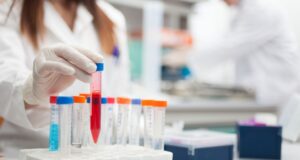The creation, validation, and transfer of analytical methods are critical drug research and production components. Analytical chemistry is used to create methods that include procedures for identifying, isolating, and quantifying the chemical components of biochemical parameters.
What Is Analytical Method Development?
The objective of developing analytical methods is to ascertain the identification, purity, physical properties, and potency of pharmaceuticals and their bioavailability and stability. Analytical technique development and validation can be thought of as the process of demonstrating that analytical processes are suitable for evaluating pharmaceuticals; more specifically, the active pharmaceutical ingredient (API).
Analytical techniques are created to compare the substances’ unique features and to set acceptability criteria for these qualities. As such, analytical technique development entails evaluating and selecting the most exact test protocols for determining a drug’s composition.
What Are The Most Common Analytical Procedures?
The most often used analytical techniques include identification tests, quantitative impurity content tests, limit impurity control tests, and quantitative active moiety testing in a drug substance or product.
Qualitative And Quantitative Methods For Drug Development
It is important to distinguish between qualitative and quantitative methods when considering analytical approaches to drug development. Validation criteria for compound testing include specificity, the limit of detection, the limit of quantitation, linearity, accuracy, range, precision and stability. Additionally, revalidation may be required if modifications are made to the manufacturing process of the therapeutic substance; the composition of the medicinal product; or the analytical method.
What Are The Primary Steps Involved In Drug Method Development?
An analytical method’s lifespan begins when a pharmaceutical firm (or contract analytical testing facility) identifies a need for a novel analytical technique.
novel analytical technique.
Next, they will decide whether to adopt an existing/standard approach, or to design an entirely new way to meet the specific demand. After the development stage is completed, a validation strategy will be created, and method validation trials will be conducted. The validation process should be guided by a protocol which clearly defines the method’s application purpose and scope; performance characteristics with associated acceptance criteria; validation experiments; standards; and reagents. After the analytical method validation establishes the method’s suitability for its intended purpose, standard operating procedures (SOPs) must be created and authorized for the method’s routine execution.
Because the analytical method’s suitability should be continuously checked throughout its life, the revalidation criteria and the type/frequency of system suitability tests (and quality control checks) should be stated. After submitting the validation report successfully, the analytical technique can be utilized for routine analysis.
If method modifications are made, it is critical to assess their impact on the procedure’s suitability for its intended application. If the present validation covers modifications made to the analytical technique, no further validation is required. Otherwise, any modifications beyond the scope of current validation will result in revalidation, or in certain cases, method redevelopment and new validation.
What Is Analytical Method Transfer?
Analytical method transfer is usually done with the help of a transfer protocol which lays out the parameters that will be looked at (and the acceptance criteria used to look at the results). Transfer studies usually involve 2 or more labs (the originating and receiving labs) working together to follow a pre-approved transfer protocol.
When producing method development data in early phase clinical trials, what regulatory criteria are considered?
Pharmaceutical method development and validation must comply with established international standards such as those published by the United States Food and Drug Administration (FDA) and the European Medicines Agency (EMA).
The FDA and the United States Pharmacopeia (USP) refer to ICH guidelines. Of course, analytical procedures must be verified by GMP and GLP guidelines.
Which companies assist with the creation of analytical development?
Some firms specialize in developing and validating analytical methods for novel pharmaceuticals. These businesses are sometimes referred to as “Contract Development and Production Enterprises” (CDMOs). Rondaxe provides CMC consulting services through US-based labs.
Conclusion
The creation, validation, and transfer of analytical methods are critical components of drug development. Method development is essential for commercial, regulatory, and patient safety reasons for a biotech business. It is difficult to approve clinical studies (or get marketing authorizations) without high-quality technique development and validation.
Visit Rondaxe online to learn more about analytical method development, or call us in Syracuse, New York at (315) 469-2800 today.
< Previous | Home | Next >

